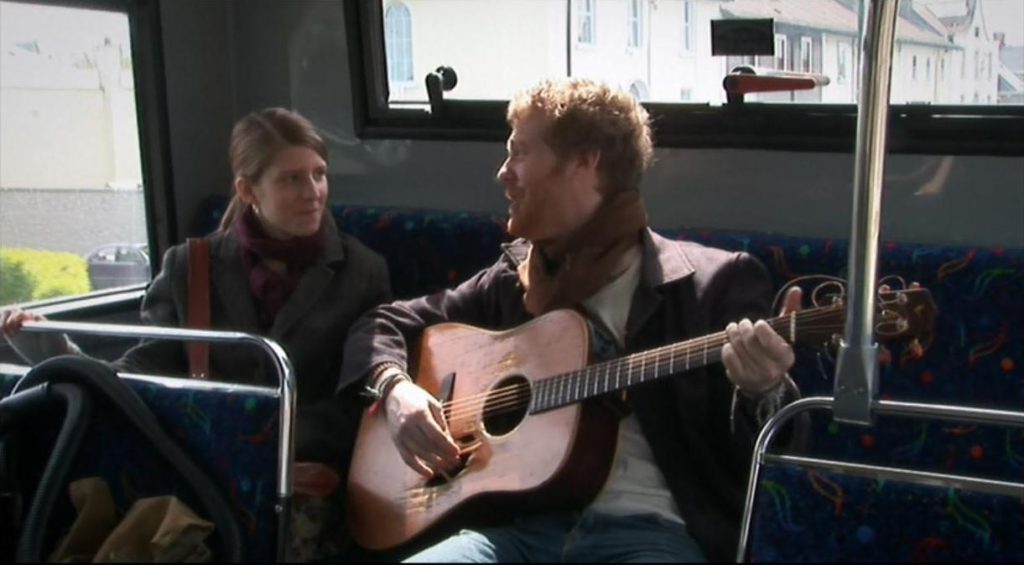
For the broken-hearted musicians of Once, songwriting functions like a secular variant of the sacrament of confession. Here, the penitents are an Irish musician (Glen Hansard) and a Czech pianist (Markéta Irglová) who meet by chance on a darkened street in Dublin during the former’s poorly attended busker performance. In a seeming nod to the seal of the confessional, the names of the two are never revealed to the audience (or even to each other). They are identified only as Guy and Girl in the closing credits. This encounter sets in motion a larger cinematic exploration of how music might permit two wounded souls to atone for fractured relationships and experience a modicum of grace in an increasingly irreligious world.
The confessional nature of the songs in Once is evident in the way they serve not so much as vehicles for exposition but moments of personal reflection that mirror the path of repentance. Like the sacrament of confession helps penitents better know themselves and their sins, Guy and Girl’s compositions allow them to demonstrate an openness to grace and a self-awareness that affords room for reconciliation. The film begins with Guy covering Van Morrison’s “And the Healing Has Begun,” a seeming acknowledgment that he is open to the way of recovery despite the still tender wounds of the present. It is followed by the original piece “Say It To Me Now,” in which Guy declares “I’m picking up the message, Lord. And I’m closer than I’ve ever been before, so if you have something to say, say it to me now.” Subsequent songs like “The Hill,” “All the Way Down,” “Leave,” and “When Your Mind’s Made Up,” speak candidly of the moments love was choked out by miscommunication, selfishness, or stubborn will. And yet, it should be noted that these anthems of romantic disillusionment are not one-sided diatribes, devoid of self-recrimination. Rather, these songs can also be interpreted as efforts by Guy and Girl to engage with the perspectives of their exes and examine how their own actions may have contributed to estrangement. Frankly addressing their relational problems enables Guy and Girl to move towards the final step of confession – absolution and being restored to life within community.
By sharing their hearts through song, Guy and Girl ultimately move away from a state of isolation and stagnation. They are renewed by the sacred act of creation. In this manner, musical collaboration becomes a holy and redemptive act.
Prisca Bird (2022)
- Directed by: John Carney
- Produced by: David Collins; Martina Niland
- Written by: John Carney
- Music by: Glen Hansard; Markéta Irglová
- Cinematography by: Tim Fleming
- Editing by: Paul Mullen
- Release date: 2007
- Running time: 86 minutes
- Language: English
Arts & Faith Lists:
2022 Top 25 Movie Musicals — #13